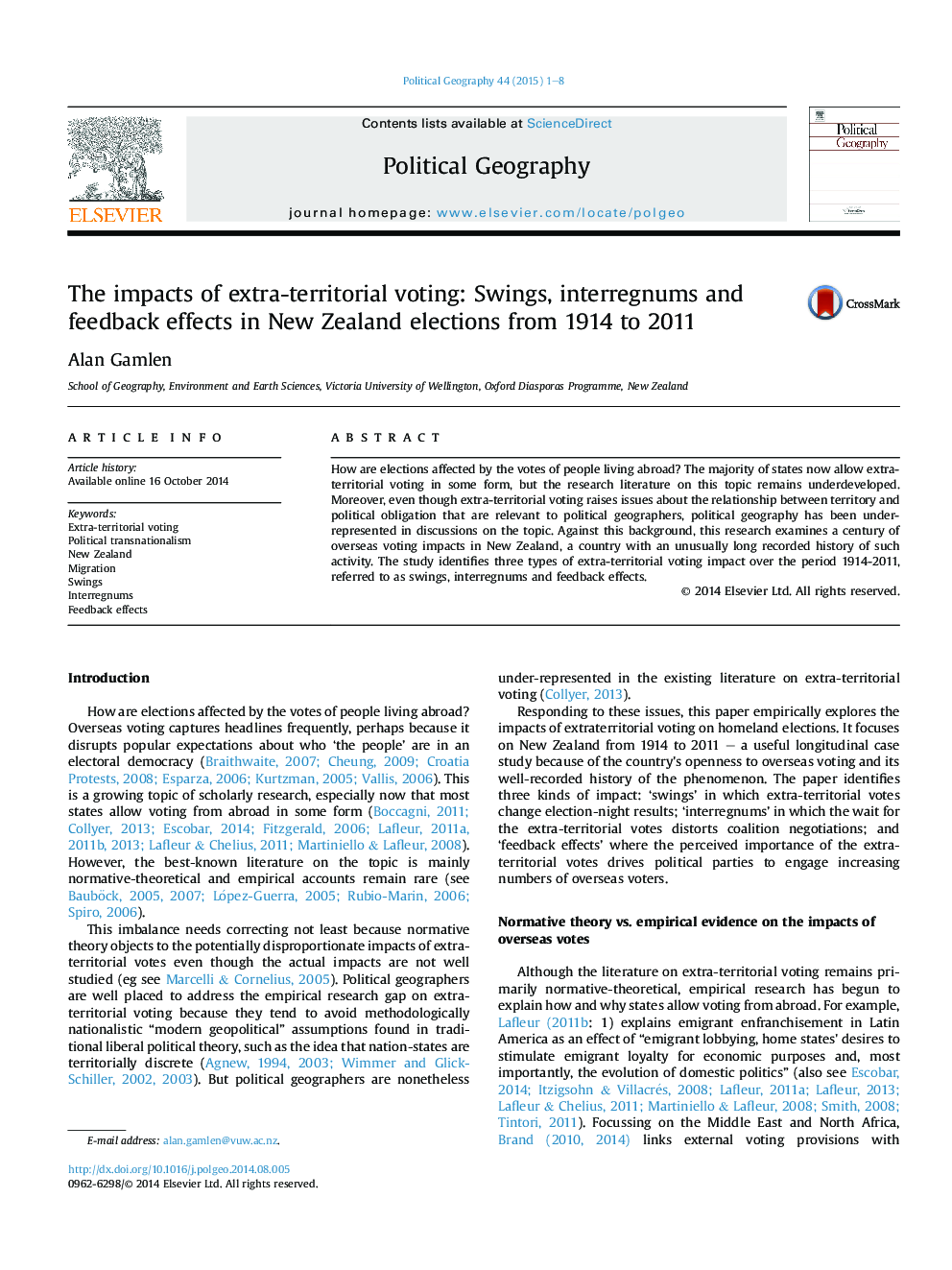| Article ID | Journal | Published Year | Pages | File Type |
|---|---|---|---|---|
| 1061906 | Political Geography | 2015 | 8 Pages |
•Extra-territorial voting is widespread and relevant to political geography, but under-researched empirically.•Existing research is mainly normative-theoretical and focus on potential, not actual, extra-territorial voting impacts.•This paper analyzes the impacts of extra-territorial voting in New Zealand, which has a long record of the practice.•It identifies three main impacts in the period 1914–2011: swings, interregnums and feedback effects.
How are elections affected by the votes of people living abroad? The majority of states now allow extra-territorial voting in some form, but the research literature on this topic remains underdeveloped. Moreover, even though extra-territorial voting raises issues about the relationship between territory and political obligation that are relevant to political geographers, political geography has been under-represented in discussions on the topic. Against this background, this research examines a century of overseas voting impacts in New Zealand, a country with an unusually long recorded history of such activity. The study identifies three types of extra-territorial voting impact over the period 1914-2011, referred to as swings, interregnums and feedback effects.
